Amherst landlords decry town’s rental permitting plan
| Published: 12-03-2023 1:00 PM |
AMHERST — A group representing about 500 landlords and others who rent property in Amherst is questioning the legality of a new rental permitting bylaw that could be adopted by the Town Council Monday, contending that imposing a revised inspection system will increase rents and may invade the privacy of and infringe on the rights of renters.
“Why are we treating tenants like second-class citizens?” Steve Walczak, Puffton Village’s property manager and president of the Amherst Landlords Association, said in an interview at the North Pleasant Street apartment complex Thursday.
More than a decade after the town first launched a program to register all rental units, the Town Council appears poised to create a more rigorous process to ensure that these properties are compliant with building, health and zoning codes.
“What has changed in the 10 years that they want this?” Walczak said, observing that when the program began, following a Town Meeting vote in 2013, it was understood regular inspections by municipal inspectors would not be part of the program.
Since being enacted, complaints surrounding noise, parking and other property issues have dropped by 30%, from an average of 414 per year to 291 in 2019 — the last year prior to pandemic — according to statistics provided by the association.
“We’re doing our part,” Walczak said. “There are those of us who are doing what we should be doing.”
If the new bylaw is adopted, it would go into effect next spring for the 1,258 rental properties in Amherst, containing 5,134 residential units, based on rental permit data. Those range from single-family homes to mixed-use buildings and apartments complexes like Puffton Village. It calls for more frequent inspections and examinations on each property, with the inside and outside of each unit looked at once every five years, at minimum.
This would replace a self-certification process, where property owners and landlords assure the town’s inspections department that conditions of residential rental properties are fit for human habitation, with visits from a municipal inspector only triggered by complaints.
Article continues after...
Yesterday's Most Read Articles
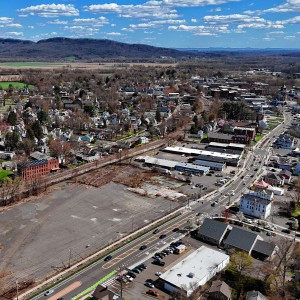 Northampton bans auto dealerships near downtown; zone change won’t affect Volvo operation on King Street
Northampton bans auto dealerships near downtown; zone change won’t affect Volvo operation on King Street
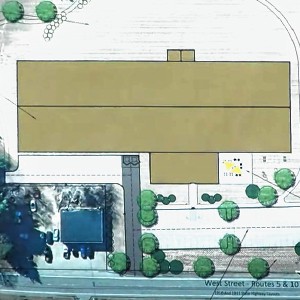 Proposed Hatfield pickleball/tennis building raising eyebrows
Proposed Hatfield pickleball/tennis building raising eyebrows
 South Hadley man killed in I-91 crash
South Hadley man killed in I-91 crash
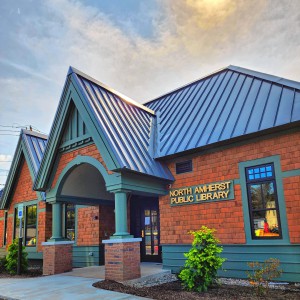 ‘Home away from home’: North Amherst Library officially dedicated, as anonymous donor of $1.7M revealed
‘Home away from home’: North Amherst Library officially dedicated, as anonymous donor of $1.7M revealed
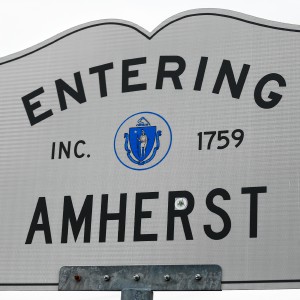 Police respond to alcohol-fueled incidents in Amherst
Police respond to alcohol-fueled incidents in Amherst
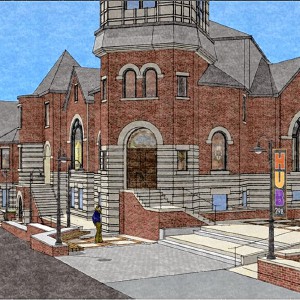 Public gets a look at progress on Northampton Resilience Hub
Public gets a look at progress on Northampton Resilience Hub
Whether the town will get cooperation from the Amherst Landlords Association is uncertain, as in addition to threatening legal action, it is encouraging landlords not to submit applications, understanding tenants are not happy about having to let inspectors in.
“The recommendation to us by two attorneys is we do not sign permit applications,” Walczak said.
Walczak said he anticipates that more than a quarter of his employees’ staff time would be handling a response to the program, from informing tenants, because the onus is on landlords to notify them, and making repairs. Rents could go up $30 to $60 per month as a result.
Thomas Crossman, a property manager for Kamins Realty, said he isn’t sure what problems the Town Council is trying to solve, but the revisions will make housing stock more expensive.
“If you want affordable housing, you can’t add costs to affordable housing,” Crossman said.
The Town Council and Building Commissioner Rob Morra, who supports the initiative, have received direct communication from the Amherst Landlords Association, including a Nov. 9 letter expressing “grave concerns” about the rental regulation bylaw and how it may violate the rights of both tenants and landlords, as guaranteed by Article 14 of the Massachusetts Constitution and the Fourteenth Amendment to the United States Constitution.
“It is our firm belief that any legislation passed by our town should fully respect the constitutional and privacy rights of all town inhabitants. No town resident, and in particular no tenant, should be treated by the town as a second-class citizen in regard to his or her right to privacy or freedom from unreasonable search and seizures, merely by dint of whether he or she is fortunate enough to own his or her home.”
An earlier letter, sent in September by attorney Lawrence Farber on behalf of the association to Town Manager Paul Bockelman and At Large Councilor Mandi Jo Hanneke, who chairs the Community Resources Committee, threatens legal action and calls any fees associated with it an unlawful tax, due to landlords not deriving a benefit from the fee.
“Clearly, this is not a bylaw seeking to provide a service for landlords,” Farber wrote. “As such, this constitutes a tax, which the town has no right to implement or collect as there is no authority by the commonwealth for it to do so.”
Unlike a decade ago, when the town officials formed a committee to evaluate the, bringing together landlords, property owners and public safety officials, no experts from the industry consulted for this revision.
“This time it was five committee members making a decision on their own,” said Patrick Kamins, owner of Kamins Real Estate and treasurer for the association. “We really weren’t part of this.”
Walczak said there has been a pattern under the Town Council to make decisions without input, beginning with an increase of the application fees $100 to $250 a year ago.
Even with concerns, the new bylaw appears likely to pass, as the Community Resources Committee recommended adopting it and its regulations, and the Governance, Organization and Legislation Committee is also supporting the measure.
Prior to the first reading Nov. 20, town attorney KP Law reviewed the bylaw and examined the threat of a lawsuit letter, Hanneke said, and changes were made, including referencing state and federal law.
At Large Councilor Andy Steinberg said a tenant needs to know the rights to deny access to the property. Even should this happen, the code enforcement might still apply for an administrative warrant from the appropriate official, likely a Housing Court judge to order the right to the inspection.
Hanneke said if there’s not consent from a tenant, the bylaw has a conditional permit section, with an assumption that town officials will work with the property owner to obtain a regular permit when the unit is not occupied.
District 1 Councilor Cathy Schoen said she would like to try to reduce inspections.
“I’ve been concerned from the outset that in trying to go after what we all think of as problem housing that we’ve created a new, small bureaucracy, in town,” Schoen said.
While some subsidized properties and brand new rentals would be inspected, Hanneke said federal and state inspections do not cover everything the bylaw asks to be inspected, with town inspectors considering all zoning bylaws and meeting all conditions of land use permits issued by the town.
“A federal or state housing inventory inspection doesn’t do any of that,” Hanneke said.
Scott Merzbach can be reached at smerzbach@gazettenet.com.


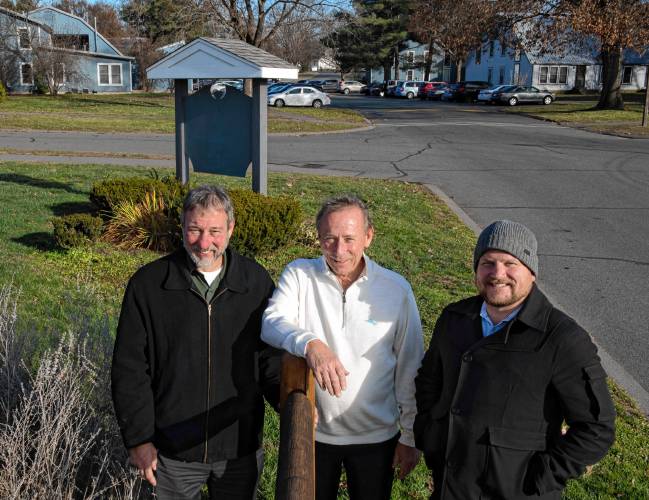
 State Senate budget funds free community college for all
State Senate budget funds free community college for all ‘We can just be who we are’: Thousands show support for LGBTQ community at Hampshire Pride
‘We can just be who we are’: Thousands show support for LGBTQ community at Hampshire Pride Doors open at Tilton Library’s temporary home at South Deerfield Congregational Church
Doors open at Tilton Library’s temporary home at South Deerfield Congregational Church Area property deed transfers, May 2
Area property deed transfers, May 2
